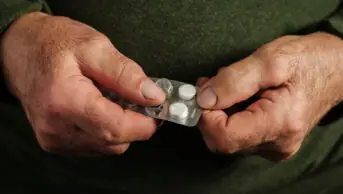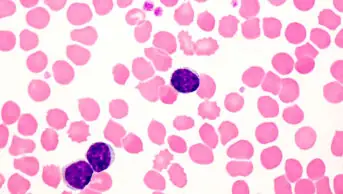
Courtesy, James Clark
James Clark is programme manager for the Greater Manchester Cancer Vanguard.
What path did you take to get to your current position?
After completing my pharmacy degree in 2009 at Liverpool John Moores University, I worked as a rotational pharmacist at The Christie NHS Foundation Trust in Manchester — the largest specialist cancer site in Europe. I worked in various roles within the pharmacy department, including clinical, homecare, electronic prescribing and aseptic services. My last role in pharmacy was as the medicines optimisation and service improvement pharmacist from 2015–2016, where I was able to contribute to the national NHS England and Medicines Optimisation Clinical Reference Group project. We developed a standard approach to dose banding of chemotherapy across all hospital trusts. Working on a number of projects, both locally and nationally, exposed me to opportunities within other cancer services outside of pharmacy.
What are the daily tasks and responsibilities associated with your role?
As programme manager for the Greater Manchester Cancer Vanguard, I am responsible for the management of 17 discreet projects within a national programme — of which, Greater Manchester is one of three partners. A lot of my daily work involves managing a number of different stakeholders within the NHS, and in the charitable sector and industry. I am responsible for the finance and delivery reports, as well as advising the programme director on any issues or risks that have been identified at project level. This could be managing the potential oversight of timelines and performance, or programme overspend or underspend. I am also charged with ensuring the programme is fully evaluated and that successful projects are continued for future development.
What influenced you to apply for this role?
When I was working in pharmacy I thoroughly enjoyed project work — being part of a project team and leading change. I felt as though it was important for my future development within the NHS to apply some of these skills to areas of healthcare that I was less familiar with. I felt the need to test myself outside of the pharmacy environment in areas such as primary care, education, radiology and academia, so that I could further develop the programme management skills I had acquired within pharmacy.
What is the Greater Manchester Cancer Vanguard Innovation and how did it come about?
The Greater Manchester Cancer Vanguard Innovation is one of three elements of the national Cancer Vanguard. The Cancer Vanguard is a partnership led by The Christie NHS Foundation Trust, The Royal Marsden NHS Foundation Trust, and University College London Hospitals NHS Foundation Trust. It works across a population of 10.7 million people, which provides an unprecedented opportunity to transform and create new models of cancer care that can be reproduced nationally.
Vanguard Innovation is the Greater Manchester arm of this national partnership. Its aim is to test out innovations in cancer prevention, early diagnosis, cancer education and living with cancer.
How does the Greater Manchester Cancer Vanguard programme relate to the NHS ‘Five year forward view’ and New Care Models Programme?
In 2014, NHS England published the ‘Five year forward view’, a strategy that described how new ways of organising care were needed to meet the huge challenges facing health and social care services. To develop this strategy, NHS England created the Vanguard programme, which encouraged local healthcare teams across the country to become ‘Vanguard’ sites by proposing innovative solutions to their challenges.
NHS England then commissioned a taskforce to examine the state of cancer care and give recommendations for action as part of a national five-year strategy. Their report, ‘Achieving world class cancer outcomes: a strategy for England 2015–2020’ identified a number of priorities. These included a radical upgrade in public health and cancer prevention, and a national focus on achieving earlier diagnosis in cancer patients.
After this, NHS England selected a number of Vanguard sites that were designed to take the lead in developing new models of care. Greater Manchester, along with its national partners, is one such site. It has tested new ways of delivering services to provide a blueprint for the rest of the country.
What career opportunities exist for pharmacists wishing to work in a Vanguard programme?
There are plenty of opportunities for pharmacists who would want to work in this area of the NHS. Pharmacists possess the analytical and organisational skills required to move into project and programme management. Alongside strong communication skills required to work well at this level, I think pharmacists’ ability to read and comprehend masses of complex information makes them ideal candidates to be successful programme managers.
What advice would you give pharmacists considering this career path?
I would advise anyone thinking of going into programme management to gain experience working as part of a project team. Get involved in as many projects as possible, however big or small, in order to apply some project management methodology and give you a feel for project work. After this, completing recognised qualifications such as PRINCE2 and Six Sigma will help fine-tune project management skills. Once you are comfortable managing pharmacy projects, I would recommend using these skills to your advantage; challenge yourself by applying them to opportunities outside of pharmacy.


